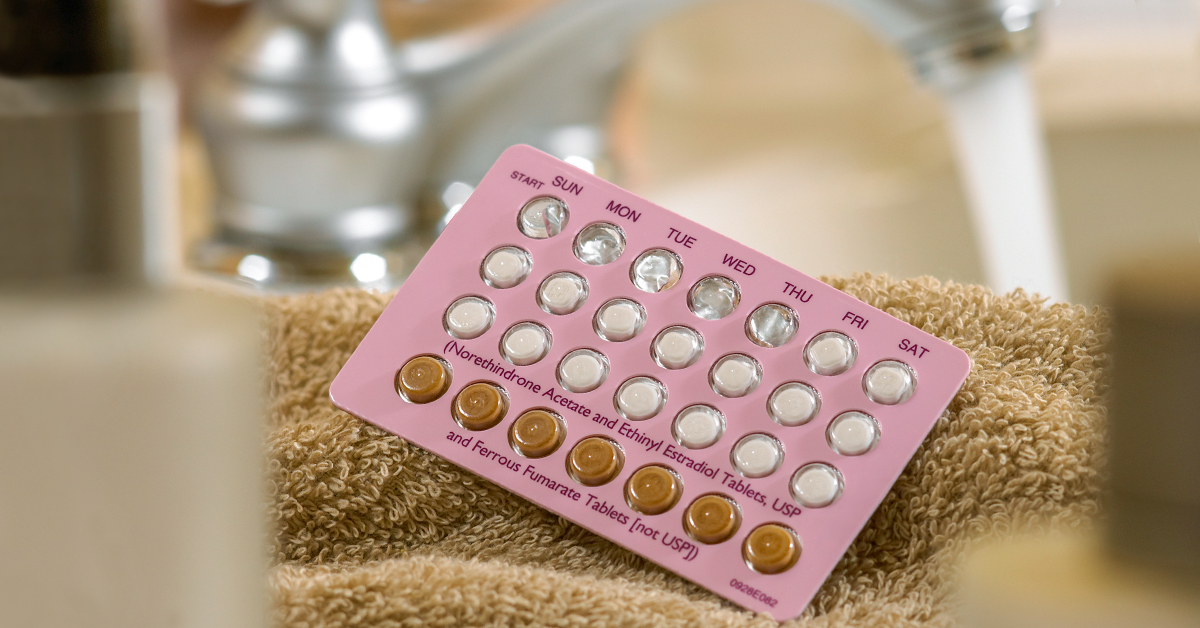Acne is a problem that many women have to face and which is known to not only cause skin scarring but can also lead to issues such as anxiety, social isolation and embarrassment. In some cases, dealing with severe acne can even lower your chances of getting employed. Birth control pills have been used for many years to treat acne and dermatologists have been prescribing these for this cause for many, many years. Nonetheless, there are only three birth control pills that the FDA has approved for acne treatment.
When it comes to acne treatment, birth control pills are advised for women who are healthy and who also need to use contraceptives. When other acne treatments fail, such as topical creams and oral antibiotics, a dermatologist might prescribe birth control pills. Taking birth control pills has both advantages and disadvantages.
How can birth control pills clear acne?
Acne and hormones have a very close relationship and when hormone levels shift, women tend to experience acne flare-ups. In some cases, acne can remain there for years, even when hormone levels are balanced out, even after menopause. Acne itself gets triggered by the production of sebum or the excess production of it. It is an oil that gets produced by the glands in your skin. Not only does sebum affect skin cells, but it can also clog the pored and at the same time, it can promote bacteria growth, which also contributes to acne flare-ups. A group of hormones called androgens, which include testosterone, are the ones responsible for sebum production stimulation. In usual cases, there is low production of the androgens. As birth control pills are made of both oestrogen and progesterone, they can help to lower the number of androgens in the body. If there is a reduction in androgen levels, there will be less sebum and less severe acne.
What types of birth control pills can treat acne?
In the last decade, there have been more and more birth control pills being introduced to the marked. But up until now, only three birth control pills have been approved by the FDA for treating acne. All of them contain both oestrogen and progesterone and are known as a combination of birth control pills. The ones that only contain progesterone are known to worsen acne. The birth control pills that have been approved until now are:
1) Ortho Tri-Cyclen, which combines oestrogen with norgestimate, a progestin type, which is synthetic, or manmade. It is available in different doses of progestin.
2) Estrostep, which combines oestrogen with a progestin known as norethindrone. This type of birth control pill is available with different doses of oestrogen.
3) YAZ, which combines drospirenone, also a synthetic progesterone type with oestrogen. This type of birth control pill is known to have an increased risk of blood clots, more than other pills.
All these three birth control pills show similarities and not that many differences when it comes to their effectiveness in treating acne.
Do birth control pills help with severe acne?
The three above-mentioned birth control pills have been approved for treating only moderate acne. The women to whom these are prescribed to should also need contraception, be of at least 14 or 15 years old and have already gotten their menstrual cycle.
Dermatologists are known to prescribe birth control pills in even severe cases. There might be also other products, that haven’t been approved by the FDA yet but are still known to improve acne, such as Yasmin and Alesse. If you are on birth control pills and they are treating your acne well, then there is no need to switching to another brand. However, when considering birth control pills for the first time, if suffering from acne, you should fo for one of the ones that are approved for treating acne. It might take a couple of months before your skin clears up. It is also common that there is a flare-up in the beginning when you start taking birth control pills. For better results, you can also use topical medication and antibiotics, as birth control pills only work toward one acne factor, which is the excess sebum. Women who have irregular periods, obesity or excess facial hair accompanied by acne, might need to get further testings, as the cause might be a medical condition such as polycystic ovary syndrome or another hormonal condition.
What are the benefits of birth control pills?
There have been several clinical trials that have proven that birth control pills can help towards decreasing acne flare-ups, having less inflammation, less severe acne and fewer pimples. Birth control pills are also known to be one of the best forms of contraception, as they are very reliable and can not only benefit your skin. The importance is that you take these pills as scheduled.
What are the risks of taking birth control pills?
In the past, birth control pills have contained high doses of oestrogen and progesterone, which is no longer the case. As these birth control pills only contain low doses of these hormones, their medical risks have also decreased. There are nonetheless some side effects and increased risks that come with taking birth control pills, such as a heart attack, a stroke and an increased risk of dangerous blood clots in the lungs or the legs. There are also some further side effects, such as migraine headaches, depression, mood changes, problems with the liver and gallbladder.
There are some things that you need to take in consideration before starting to take birth control pills. It is not advised for those who have hypertension, or a history of heart disease or blood clots. If you have a history of cancer, especially in the breasts, uterine or liver, it is not recommended to take birth control pills either. Women who smoke, are currently pregnant or severely obese shouldn’t take birth control pills either, due to the increased risks of suffering from one of the side effects.
